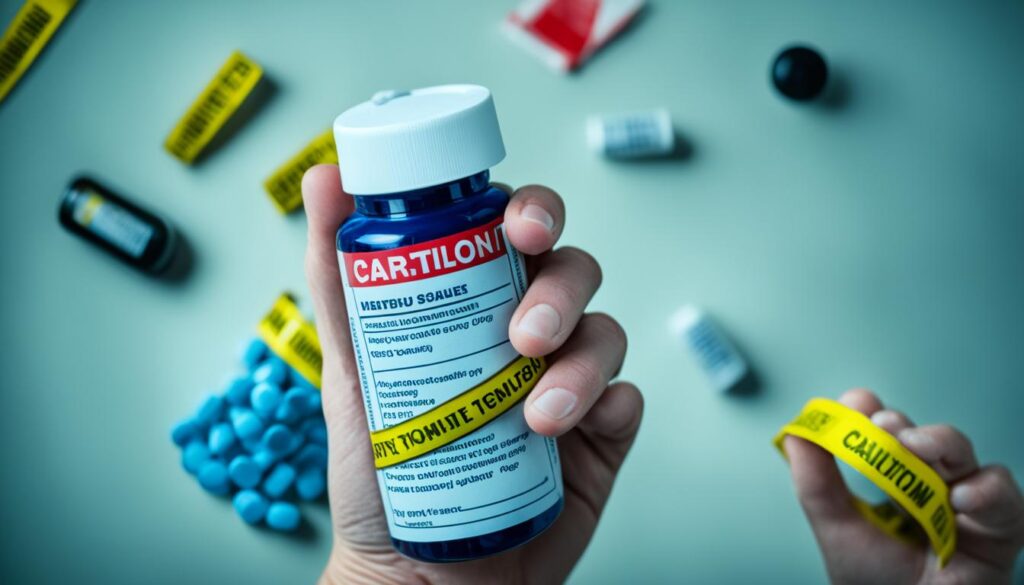Natural Remedies For Depression is a widespread issue that drastically affects how people live and feel. While medicines can help, many individuals are looking at natural remedies to help manage their depression symptoms. These natural remedies include herbal supplements, diet changes, and changes in daily activities.
Studies suggest that natural remedies such as St. John’s wort might help those with mild to moderate depression. But, they shouldn’t replace seeing a doctor or taking prescribed medicine for treatment. It’s vital to talk to a healthcare provider before adding any natural supplements to your care routine. This is because these supplements can affect your medications and might cause side effects.
Key Takeaways
- Natural remedies, like herbal supplements, can be extra support for depression and anxiety. But they should work together with professional therapy.
- Some natural substances, including St. John’s wort, SAM-e, and omega-3s, could help reduce depression and anxiety.
- Changes in how we live, such as getting regular exercise, better sleep, and mindfulness, can also help manage depression.
- Speaking with a healthcare provider before trying any natural remedies is crucial for your safety and the treatment’s success.
- We need more studies to confirm how well and safe these natural solutions are for treating major depression and severe depression.
Understanding Depression: A Mental Health Condition
Depression is a serious mental health condition that deeply affects daily life. It brings a constant feeling of sadness and loss of interest in things loved. Knowing the symptoms of depression and its causes is key to help those dealing with it.
Symptoms of Depression
Depressive symptoms can change life significantly. They may bring feelings of deep sadness and hopelessness. Sleeping too much or too little, big changes in appetite, and loss of energy are common.Ways to help include focusing on positive things and seeking professional advice.
Causes of Depression
Major depression has many triggers, from genes to life events. Things like brain chemical imbalances or difficult situations can play a part. These factors can lead to severe depression over time.
Types of Depression
Depression shows in different forms, like dysthymia or seasonal SAD. Anxiety disorders can also blend with depression. Identifying the specific type is crucial for choosing how to treat it best.
Exercise: A Natural Mood Booster

New studies show that exercise can greatly help manage depression symptoms. Doing physical activity, especially aerobic exercise, is a powerful natural remedy. It helps people who are dealing with depression.
Aerobic Exercise
Duke University did an important study. It found that just 30 minutes of moderate aerobic exercise three times a week works as well as antidepressants in the short term. What’s even better, people who kept up with exercise after the study had fewer depressive symptoms come back.
Yoga and Meditation
Another method to help depression is adding yoga and meditation to your routine. These activities help both the body and mind. They can make you feel calm and relaxed, which is key for battling depression.
Benefits of Exercise for Depression
When you exercise, your body releases endorphins. These are feel-good hormones that fight feelings of sadness and hopelessness. Plus, working out often can help you sleep better, feel better about yourself, and give you a sense of winning. This all leads to a happier, healthier mind.
| Type of Exercise | Duration | Frequency | Potential Benefits for Depression |
|---|---|---|---|
| Aerobic exercise | 30 minutes | 3 times per week | As effective as antidepressant medication in relieving symptoms, less likely to experience relapse |
| Yoga | Varies | Varies | Promotes physical fitness and mental relaxation, which can be beneficial for individuals coping with depression |
| Meditation | Varies | Varies | Fosters a sense of calm and relaxation, which can be particularly valuable for individuals coping with depression |
Mind-Body Therapies: Relaxation and Stress Reduction

The connection between mind and body is key in fighting depression. The second source talks about several therapies that work. These methods aim to lower stress and boost relaxation. Doing so can improve mood and well-being.
Progressive Muscle Relaxation
Progressive muscle relaxation helps by making you tense and relax muscle groups. This makes you more aware of muscle tension. Then, you can learn to let that tension go, feeling more relaxed and calm.
Less physical stress means your mental and emotional health might get better too. It’s a great tool for tackling symptoms of depression.
Guided Imagery
Guided imagery is all about using imagination to find peace and reduce stress. By imagining serene scenes or good outcomes, you can feel better inside. This can be a big help for someone with depression.
It shifts focus from bad thoughts and gives you a break from feeling sad or stressed.
Music Therapy
Music therapy is helpful for depression too. Listening to calming music can lift your mood and decrease stress. Playing music or singing lets you share your emotions in a healthy way. This can be especially therapeutic for those with depression.
Using these therapies alongside other treatments can bring relief. They help lower stress and increase well-being for people with depression.
Natural Remedies For Depression: Herbal Supplements

Some people look for natural ways to help with depression. They might try herbs and supplements instead of or with antidepressant medicine. St. John’s wort, SAM-e, and 5-HTP are a few herbal options known for helping with depression.
St. John’s Wort
St. John’s wort is a plant from Europe. It’s been used for a long time to help with mental health, acting as a natural remedy for depression. Yet, it can interfere with some medicines, especially with prescription antidepressants.
SAM-e (S-Adenosyl-L-Methionine)
SAM-e is a compound found in the body. It helps make neurotransmitters like serotonin. Increasing serotonin levels can improve mood and symptoms of depression.
5-HTP (5-Hydroxytryptophan)
5-HTP is needed to make serotonin. It’s an herbal supplement that could be helpful for depression. Boosting serotonin may help lift your mood.
Omega-3 Fatty Acids
The source also talks about omega-3 fatty acids. These are in foods like fish. They can work against inflammation and might help with mood and memory.
Saffron
The spice saffron comes from the crocus flower. Some studies show it might work like prescription antidepressants for mild to moderate depression. More research is still needed.
While herbs may help, they’re not a substitute for professional help. Always talk to a doctor before trying any natural remedies for depression.
Dietary Approaches for Depression Management

The third source focuses on using our diet to handle depression. It points out how certain foods and nutrients can be helpful. These include items such as:
Foods Rich in Omega-3s
Foods high in omega-3s, like fatty fish and seeds, are great for our mood. They might boost serotonin levels and lower inflammation. Both of these are vital for managing depression.
Probiotic-Rich Foods
Adding probiotic-rich foods to our meals, like yogurt and fermented veg, can be good. Probiotics help our gut health. This affects how we feel and our mental well-being.
Vitamin D and Depression
Not getting enough vitamin D might raise our depression risk. It’s key to get plenty of vitamin D from the sun, food, or supplements. Doing so might ease depressive symptoms and help manage depression.
Lifestyle Modifications for Depression Relief

The third source highlights the importance of changing some lifestyle habits to manage depression. With a few steps added to your daily life, you could see a big difference in how you feel. This can boost your mood, energy, and overall happiness.
Improving Sleep Quality
Getting good sleep is vital for your health, both physically and mentally. The source points out that fixing sleep issues, like constant wake-ups or changing schedules, helps with depression. Making a bedtime and wake-up time that stays the same, adding a calming bedtime habit, and reducing screen time before sleep can make a huge difference. This will improve how you sleep, upgrade your mood and energy, and further help you cope with depression.
Reducing Caffeine Intake
Drinking coffee might seem like it helps, but too much, it can lead to more anxiety, feeling on edge, and bad sleep. This makes dealing with depression harder. The source advises cutting back slowly on caffeine, especially in the afternoons and evenings. This shift can level out your energy and mood better.
Mindfulness and Meditation Practices
Adding mindfulness and meditation to your daily plan is a strong strategy against depression. These practices can lessen your stress and anxiety, enhance your sleep, and bring a stronger feeling of peace and concentration. Whether it’s a quick mindfulness session, a meditation guide, or a longer yoga session, taking time for self-care and quiet makes a real difference. This helps a lot with depression relief.
Combining Natural and Conventional Treatments

A mix of natural and conventional treatments is often best for handling depression. This might include natural remedies and prescription medications together.
Healthcare providers can help create a plan that works for each person. They ensure that the natural supplements won’t cause problems with any medications someone is already on.
Consulting with a Healthcare Professional
It’s very important to talk to a healthcare provider, like a therapist or psychiatrist, about using natural remedies. They give advice on what’s good and what’s risky. Plus, they make sure everything you take is safe together.
Integrating Natural Remedies with Prescribed Medications
Adding natural remedies can sometimes make prescription meds work better against depression. Yet, always check with your care provider first. They help make sure both types of treatments won’t clash or harm you.
Regular check-ins and tweaks to your treatment might be needed. This keeps everything on track towards feeling better.
Choosing a mix of treatments makes depression management more complete and individual-focused. This approach can lead to better mental health and feeling good overall.
Safety Considerations and Precautions

Looking into natural remedies for depression needs careful thought. It’s important to remember safety considerations and precautions. Some supplements, such as St. John’s wort, SAM-e, and 5-HTP, might help with mild to moderate depression. Yet, they can have side effects and interact with medications.
Potential Side Effects and Interactions
Some depression supplements might cause serotonin syndrome. This is dangerous and happens when serotonin gets too high. If you’re taking prescription antidepressants or other serotonin-affecting medicines, be careful. Talk to your doctor about the risks and possible side effects and interactions.
Quality Control and Regulation
Natural depression remedies don’t go through the same checks as prescription drugs. So, the safety and efficacy of many herbals and other naturals might not be clear. It’s vital to pick well-known brands and watch out for false claims or contamination.
Knowing about safety considerations and precautions for depression’s natural remedies helps make smart choices. It also encourages talking to healthcare providers for a good treatment plan.
The Role of Support Systems and Self-Care

Managing depression is easier with a strong support network and regular self-care. It’s important to have people around you who understand and care. Finding supportive friends and family can make a big difference.
Also, being kind to yourself is vital. Activities like meditation and mindfulness can boost self-acceptance. So can religious or spiritual practices. These practices help you feel more at peace with yourself.
Building a Support Network
Don’t be afraid to reach out. Talking to friends, family, or support groups helps you feel less alone. It can also make you feel more understood.
Being part of groups or clubs can also lift your spirits. It gives you a chance to do things you love. Mental health professionals, like therapists, are there to help. They can give you personalized advice and support.
Practicing Self-Compassion
Looking after yourself is crucial, too. Meditation and mindfulness can build self-compassion. These and religious or spiritual practices can change how you see yourself for the better.
Learning to be kind to yourself is a game-changer. Treating yourself with care helps you bounce back from tough times. It’s a powerful way to face depression.
Also Read: What Are The Benefits Of Mental Health Counseling?
Conclusion
In summary, the article shares ways to manage depression through natural remedies and lifestyle changes. It talks about using exercise, certain types of therapy, altering diets, and taking herbal supplements. For example, St. John’s wort, SAM-e, and omega-3s are mentioned.
These methods can be helpful for those dealing with mild to moderate depression. But, consulting a healthcare provider first is key. This step helps avoid any potential problems, especially if you’re taking other medications.
Taking a holistic approach that includes natural remedies and lifestyle shifts, alongside traditional treatments, seems very promising. Working together with a mental health expert can help a lot. It allows you to create a plan that’s just right for you. This way, you are actively involved in your mental health recovery, finding ways that fit your personal journey.
FAQs
Q: What are some effective natural remedies for depression?
A: Some effective natural remedies for depression include dietary supplements, herbal remedies, physical activity, and natural antidepressants.
Q: How can supplements help treat depression?
A: Supplements for depression such as magnesium and whole grains can help reduce symptoms of depression and improve overall mood.
Q: What role do herbal remedies play in managing depression?
A: Herbal remedies can help alleviate symptoms of depression and anxiety, providing a complementary approach to traditional treatment methods.
Q: Are there any natural antidepressants that can improve depression symptoms?
A: Yes, there are several natural antidepressants that have been shown to help improve symptoms of depression, such as certain dietary supplements and physical activities.
Q: How can complementary and integrative approaches benefit those with anxiety and depression?
A: Complementary and integrative approaches combine traditional treatments with natural methods to reduce anxiety, improve mood, and enhance overall well-being in individuals with depression.
Q: Is research available to support the use of natural remedies for depression?
A: While more research is needed, existing studies show promising results in using natural remedies such as dietary supplements and herbal remedies to manage and improve depression symptoms.
Q: What are some common symptoms of depression and anxiety?
A: Symptoms of depression and anxiety can include persistent feelings of sadness, lack of interest in activities, changes in sleep or appetite, and increased levels of stress or worry.
Q: How effective are natural treatments in reducing symptoms of depression?
A: Natural treatments can be effective in reducing symptoms of depression, especially when used in conjunction with traditional treatment methods and under the guidance of a healthcare provider.
Q: What are the risks associated with using natural remedies for depression?
A: While natural remedies can be beneficial, it is important to consult with a healthcare provider before using them, as they may interact with other medications or conditions, leading to potential risks or side effects.
Source Links
- https://www.healthline.com/health/beating-depression-naturally
- https://www.verywellmind.com/beat-depression-without-prescription-drugs-1065079
- https://www.mayoclinic.org/diseases-conditions/depression/expert-answers/natural-remedies-for-depression/faq-20058026




